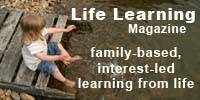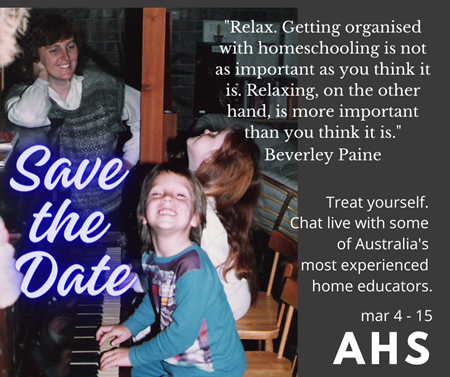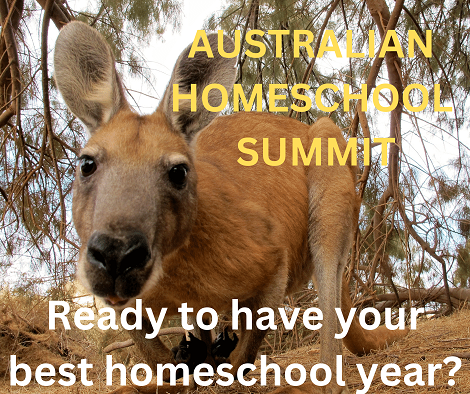|
Managing Anti-Social Behaviour
by Beverley Paine, 2009
We were paranoid overprotective parents and proud of it! I saw what happens in playgrounds first hand as a kid myself. I didn't see any difference in children's behaviour when I grew up. In fact, the same anti-social rules occur in the workplace, groups, clubs, etc with adults. It's not a nice world for children. There was no way my husband and I were going to allow our children out into it unsupervised!
This isn't to say we controlled all their social activities and actions. We monitored and supervised them, often from a distance, but generally within sight. I believed, and still do, that this builds confidence and resilience in children.
For example, should an anti-social behavioural problem start to manifest either between my children or in a group, my children would naturally glance over to where I was (usually chatting with other adults). They'd see that I was keeping an eye on them and know that if things got out of hand I'd intervene. They knew from experience that my intervention would usually begin benignly, in a non-intrusive and non-confrontational way. I might chose to call out and ask my children a question totally unrelated to what was happening with the children - maybe a question asking them if they were hungry, for example. This alerted all the children to the fact that there was an adult in the vicinity. Often that was enough to tone anti-social
behaviour done.
If I felt that someone was being victimized or inappropriate behaviour could lead to someone getting hurt, I'd move closer and start a conversation with the kids in the group - often it would be about something else entirely. Children know when they are behaving inappropriately - most look chastised even though I haven't mentioned the inappropriate behaviour. Some are less sensitive (brazen, used to being bullies) - these I tend to engage directly in conversation. My tactic is to let them know not that I disapprove of their behaviour, but that an adult is in the picture: I'm watching and interested in what is going on with the group of children. That usually does the trick.
If the behaviour has escalated into direct bullying, I have no qualms about putting a stop to it and protecting the children - even the bullies - from the consequences of the behaviour. That's our job as adults.
Some families think it is pain to be around their children all the time. I don't. And my children (now adults) don't either. We made sure that the things we wanted to do as adults we could generally do with our children present; and vice versa. Some people may feel that it is too much of a sacrifice of our own time: if that is the case then I still believe it is hugely important that children are not left to fend for themselves, but to have a responsible person (old enough to understand that concept and be aware of consequences) that can 'look out' for them, at all times, until they are old enough to do it confidently for themselves.
This is what we want as adults: we want friends that will back us up, look out for us, warn us of danger, etc. In fact, as adults we demand this level of care and responsibility from the government, businesses, community centres, etc. Although we acknowledge 'caveat emptor', we insist that the welfare of everyone is everyone's responsibility, yet we expect little children to fend for themselves in the name of 'socialisation'.
So, if you need time to yourself, you need to find someone who can look out for your child in a responsible way. We arranged our lives so that we can do what we wanted and needed to, but in the same area as our children. We were on call, and happy to interrupt what we were doing to meet their needs, help them sort out problems, gently guide or supervise their activity (often from a distance, usually not directly involved in their play), answer their questions, offer new directions or ideas for play props (guiding and providing learning opportunities through play), etc. If you can, find someone who can do this for your children, even if only for a couple of hours a week. Or, if you work (even from home), for whatever time period is
necessary.
We saw this as part of our 24/7 commitment to our children as parents and home educators.
When my seven year old went to play with his friend my son reported that they'd often watch what we considered unsuitable movies, or head off for an hour or so into the nearby dunes with an air rifle to shoot at birds, as well as collect wild lizards to keep as pets. Once I knew about this, I explained to the mother and the child why it was inappropriate for my son to use guns, shoot at birds and collect wildlife and that this needed to stop. I also asked that in future if the boys were watching movies or computer games there was an adult in the room with them.
Being present allows the opportunity to talk about the content. I have always found that children are keen to express their concerns about what they are watching and talk about the issues if adults are interested, rather than simply condemning in an authoritative tone. With my own sons we had a continuous dialogue about what I considered to be unsuitable content - they moderated their behaviour to please me (they didn't like to see me worried, concerned or upset) but still continued to do what they wanted but in an AWARE and critical way.
My seven year old continued to enjoyed his friendship with his friend. His friend learned that other people have different values and standards and that some mums care enough to enforce them. Sure, he didn't like not having the same freedom to go shooting and hunting with my son, but he was happy to accommodate our needs so that he could still play with his friend.
This is true socialisation! Learning how to get along with everyone, not just pleasing oneself.
My youngest is a very independent, strong character - a natural leader - and this was apparent from an incredibly young age. He was the one that suffered most from the 'I want it my way' attitude that all children seem to go through, especially in the early years of childhood.
As a young person in my teens I became aware that a lot of kids were 'angels' when in the presence of adults and the opposite when the adults were out of sight (even at the age of 2!) This seemed to happen most when their parents forced their toddlers to be 'nice' to others, even those that were ignoring their needs or hurting their feelings. I noticed that parents would frequently insist that their little ones that they had to accommodate the other children's needs first, that they had to share their toys, their parents, their personal space, etc, or they would be told off, disciplined and some were even punished.
I started to wonder if forcing children to share from an early age made them insecure and taught them that people, especially other children, couldn't be trusted. I also wondered if this taught and reinforced in little children competitiveness: that they needed to compete with others, rather than cooperate, to have their needs met. The exact opposite of what the parents wanted to achieve!
So I didn't ask my children to share: not their toys, their space or their parents. I made sure there were plenty of toys to go around, and put away any special toys that my children valued when others came to visit. I guarded their private spaces - if they didn't want others to play in their bedrooms I closed the door and told everyone it was off limits. If my children needed my attention to ask a question or talk to me, I would interrupt my conversation. I wasn't perfect in doing this and it took me a long time to break my conditioned habits, especially as it was going against 'normal' parenting practice.
As I got better at 'protecting' my children, the result and rewards became obvious: people often commented on how well socialized my children were, how mature they were for their age, how polite and well mannered they were, and how happy they always seemed to be. But most of all people were amazed at how cooperative my children were.
Back to my youngest: we had a saying when he was a toddler - "let the wookie win". When his frustration built to the point of no return (about to become a tantrum) we'd often say "let the wookie win" and he'd get his way (so long as it didn't hurt others). By about age five he'd worked out how annoying this was, and that by getting his own way he was missing out on something important. He didn't know what it was - the opportunity to learn, which is something all children instinctively crave - but you could tell he wasn't happy with the way we caved in to his irrational behaviour.
As a result he moderated his behaviour. It didn't happen overnight. He began to see that getting his own way all the time wasn't normal behaviour - no one else in the family got their own way. The urge to be like others (socialisation) kicked in and he gradually stopped being demanding. I think we all go through this phase, but for strong, independent people who are natural leaders the need to
understand and work with the ego is much harder. We needed extra patience with this little fellow!
Everything I've written so far goes against what I was taught or told about how to parent as a child, teen and young mother. I worked out most of it by observing the behaviour of others and myself, questioning my own conditioned responses, and rejecting methods that I could clearly see weren't producing the desired results.
I did my best to listen with a critical ear that honoured my own values the advice from well-meaning people, including my own parents and in-laws and siblings. These often echoed the methods I knew didn't work or had my life or my siblings life miserable as kids. I muddled on and made lots of wrong turnings and back tracked all the time. I experimented with different ideas. My parenting wasn't consistent, even though I knew it was supposed to be. So I apologised often - almost every day - to my children for my inexpert and confused parenting. I explained to them why I did things, as well as why I changed the way I did things. And as adults now they all have a good grasp of what motivates
people, how people can change, what people need to feel okay about themselves, etc.
And now, as adults, although they aren't perfect people and have flaws and issues they have to work through and with, they all have an awesome sense of self-awareness as well as strong morals and values.
So I make no apologies for supervising my children, either closely or from a distance, for being there and making sure that what influenced their lives and development was in accordance with our values and beliefs. I make no apologies for protecting my children. I reject the notion that children should be left to grow each other up. It doesn't make sense. Children naturally look to adults for models to emulate - in nearly all of their games they pretend to be adults. They want to be involved in the world of adults - as much as they want to hang out and play with their friends.
Society has forgotten this need in children. We need to provide opportunities for both, and until children reach the age where they can confidently look after themselves in most situations, we need to hover, keep an eye on them, letting them know that if things get out of hand, we'll be there, not to rescue, but to model appropriate and constructive ways of handling the situation, demonstrating to them and others that it is possible to overcome these difficulties without getting hurt or hurting others.

Was this article helpful? Was it worth $1.00 to you?
Your gift of $1 or more helps to keep this site operating
offering encouragement
and reassurance to families
wanting
better outcomes for their children.



Beverley Paine with her children, and their home educated children, relaxing at home.
Together with the support of my family, my aim is to help parents educate their children in stress-free, nurturing environments. In addition to building and maintaing this website, I continue to create and manage local and national home educating networks, help to organise conferences and camps, as well as write for, edit and produce newsletters, resource directories and magazines. I am an active supporter of national, state, regional and local home education groups.
"You've been an inspiration to me, I love the way
you really listen to people." Vanessa
"Whenever I read your writing I always come away
with increased confidence in my ability to provide and
share a wonderful learning journey with my family!" Davina
"Your guidance, understanding, support and words of
wisdom changed our lives. We now offer support and
organise many homeschooling events for others." Lesley
"Thank you once again for your prompt and friendly service.
I am convinced that your books are going to add
quality and peace of mind to my journey of teaching my kids
at home! Just from studying your website, until almost
2am
in the morning, I 've been encouraged!" Louisa
"Thank you for all your many,many reassuring words
over many, many years. You probably don't know exactly how
valuable you are to the Australian Home Education community.
I've been reading your stuff for maybe 8 years or more now.
And I'm very grateful." Gythaa


CLICK HERE
if you want to learn
how to write your own education plans
to suit
your unique children's
individual learning needs?
Or you are looking for quality curriculum and teaching tips...
|
|
Welcome to the World of Home Education
and Learning without School!
We began educating our children in 1985, when our eldest was five. In truth, we had helped them learn what they need to learn since they were born. I am a passionate advocate of allowing children to learn unhindered by unnecessary stress and competition, meeting developmental needs in ways that suit their individual learning styles and preferences. Ours was a homeschooling, unschooling and natural learning family! There are hundreds of articles on this site to help you build confidence as a home educating family. We hope that your home educating adventure is as satisfying as ours was! Beverley Paine
3 ESSENTIAL STEP BY STEP GUIDES
Let experienced home educators Beverley, Tamara and April walk you through HOW to create a learning plan that builds on solid foundations that works for YOUR family AND ticks all the boxes for home educaton registration!
|

Tap into Beverley's
experience
through her books
"Your books, your blogs helped me beyond words... they helped me to find comfort in knowing it is ok to choose exactly what is best for my family." Nisha
"Your books and information are mind blowing and already I am feeling good about this new experience." Diane
"Your guidance, understanding, support & words of wisdom changed our lives." Leslie
"I feel specially inspired by Beverley's words and, the more I read her comments, the more inspired I feel, since my need for support, respect for different parenting styles, and information are fully met." Marijo
|
 |
|

The information on this website is of a general nature only and is not intended as personal or professional advice. This site merges and incorporates 'Homeschool Australia' and 'Unschool Australia'.
The Educating Parent acknowledges the Traditional Aboriginal and Torres Strait Islander Owners, the Custodians of Australia, and pay our respects to Elders past and present and extend that respect to Aboriginal and Torres Strait Islander people viewing this website.

Advertise on this site.













Australia's premier online annual conferences, lifetime access to video and audio recordings, freebies, notes and associated resource guides.
EVERY SUMMIT IS UNIQUE!
$29 each  2023 2023   2022 2022   2021 2021
$25 each  2020 2020  2019 2019   2017 2017
"Biggest and best Aussie homeschool event of the year!"

Home education is a legal alternative
to school education in Australia.
State and Territory governments are responsible
for regulating home education and have different
requirements, however home educating families
are able to develop curriculum and learning programs
to suit the individual needs of their children.

Without revenue from advertising
by educational suppliers and Google Ads
we could not continue to provide information
to home educators. Please support us by letting
our advertisers know that you found them on
The Educating Parent. Thanks!
|
![]() About
About
![]() Blog
Blog
![]() Articles
Articles
![]() Curriculum
Curriculum
![]() Resource Directory
Resource Directory
![]() Shop
Shop
![]() Kids Pages
Kids Pages
![]() Facebook
Facebook

![]() SA
SA ![]() VIC
VIC ![]() NSW
NSW ![]() QLD
QLD ![]() TAS
TAS ![]() ACT
ACT ![]() NT
NT ![]() NSW
NSW ![]() QLD
QLD ![]() SA
SA ![]() WA
WA ![]() TAS
TAS ![]() ACT
ACT ![]() NT
NT 





















